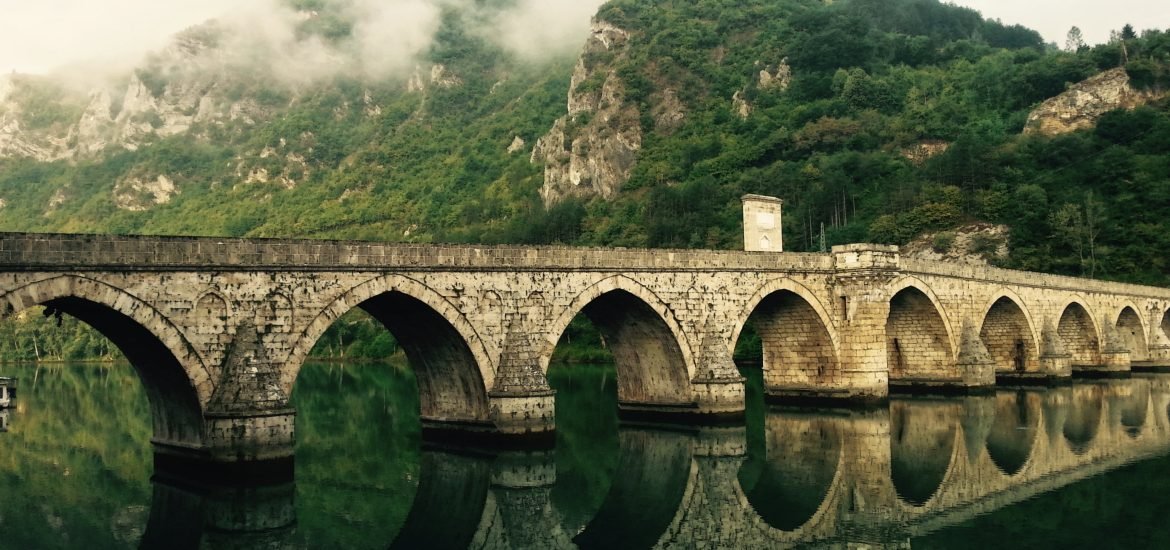
Over the next few years, 3,000 hydropower plants could be built in the Balkan region. Environmentalists say the plans threaten rivers from Slovenia to Albania, considered to be some of the last wild rivers in Europe.
“There is a tsunami of hydropower dam constructions happening here and nobody really knows about it,” Britton Caillouette, director of “Blue Heart,” a documentary that focuses on efforts to stop plans to expand hydropower in the Balkans, told Reuters in April.
Around 91% of the planned projects are small hydropower diversion dams, according to Patagonia, an outdoor clothing brand that has launched a campaign to protect Balkan rivers. These types of projects divert water and can leave portions of rivers completely dry.
There are concerns that the dams will reduce people’s access water used for drinking, farming and fishing, threaten to wipe out endemic plant and animal species, including the Danube Salmon to the Balkan Lynx, and ruin the landscape. A 2017 study commissioned by Riverwatch and EuroNatur, two environmental campaign organisations, found that around one-third of the planned dams will be built in protected areas like national parks.
“Three thousand hydropower plants … will destroy these rivers,” said Viktor Bjelić, from Bosnian environmental group Centre for Environment (CZZS). “Many of the species depending on these ecosystem will disappear or will be extremely endangered.”
In addition to the ecological concerns, there is also doubt as to whether hydropower is a clean energy source. A 2016 study found that 80% of the emissions from water storage reservoirs created by dams is methane, a greenhouse gas around 34 times more powerful than carbon dioxide. Patagonia adds that large dams and their reservoirs contribute 4% of the total anthropogenic warming impact.
By 2030, the European Union aims to have 27% of its energy supplied by renewable sources.
“These countries have plans for hydro to align with the EU’s rules on renewable energy but it is a sad state of affairs,” an EU source told The Guardian in April, referring to Bosnia and Herzegovina, along with other countries in the Western Balkans seeking to join the EU. “The alternative for a number of them is not solar or wind, but coal and particularly, lignite,” the source explained.
The government of Republika Srpska, one of Bosnia’s autonomous regions, recently said that shifting to other renewable energy sources was more difficult and costly than building dams. Energy ministry spokeswoman Zorana Kisic said: “The Republic of Srpska has comparative advantages in its unused hydro potential and considers it quite justified to achieve the goals set by the EU by exploiting its unused hydropower,” reports Reuters.
However, local people are not convinced. Residents of Kruščica, a village in Bosnia and Herzegovina, have been protesting a nearby dam project since last year. This week, a court annulled the project’s environmental permit, saying community members impacted by the project were not invited to a required public hearing on the matter, nor were they informed of the outcome. The court’s decision effectively bans any further construction on the dam.
“This is a very important victory for Kruščica and all river fighters in Bosnia and Herzegovina, proving that change is possible and the power lies with people,” said Jelena Ivanic, from CZZS.
“We are sending a clear signal to Minister Salkan Merdžanić and to investors who plan hydropower plants on the river Kruščica to terminate the concessions and to give up on this project, because we will not give up and justice is on our side.”
Many Balkan hydropower projects are “violating national and international legislation,” said EuroNatur CEO Gabriel Schwaderer. “We urgently call upon the EU commission to require from EU accession candidate countries that they abide by constitutional norms in regards to licensing procedures for large-scale infrastructure projects.”
International banks and multilateral investors have also been criticised for funding the projects, particularly by Patagonia’s campaign, which seeks to stop banks from investing in hydropower. According to a 2018 study by financial watchdog Bankwatch, the World Bank’s International Finance Corporation (IFC), European Investment Bank (EIB), the European Bank for Reconstruction and Development (EBRD) and others fund hundreds of hydropower projects.